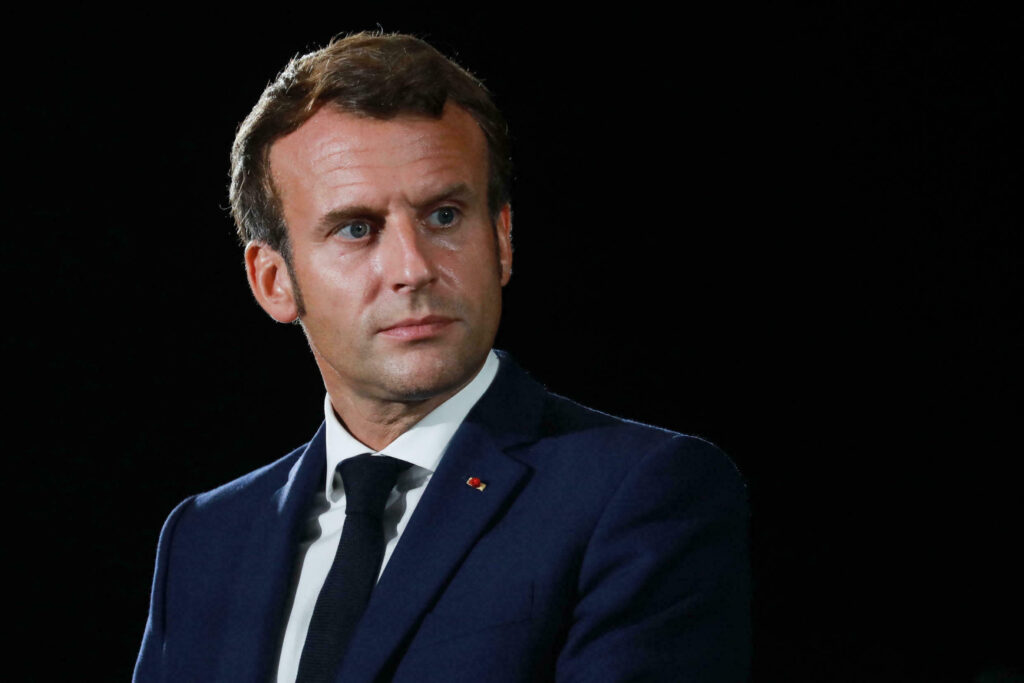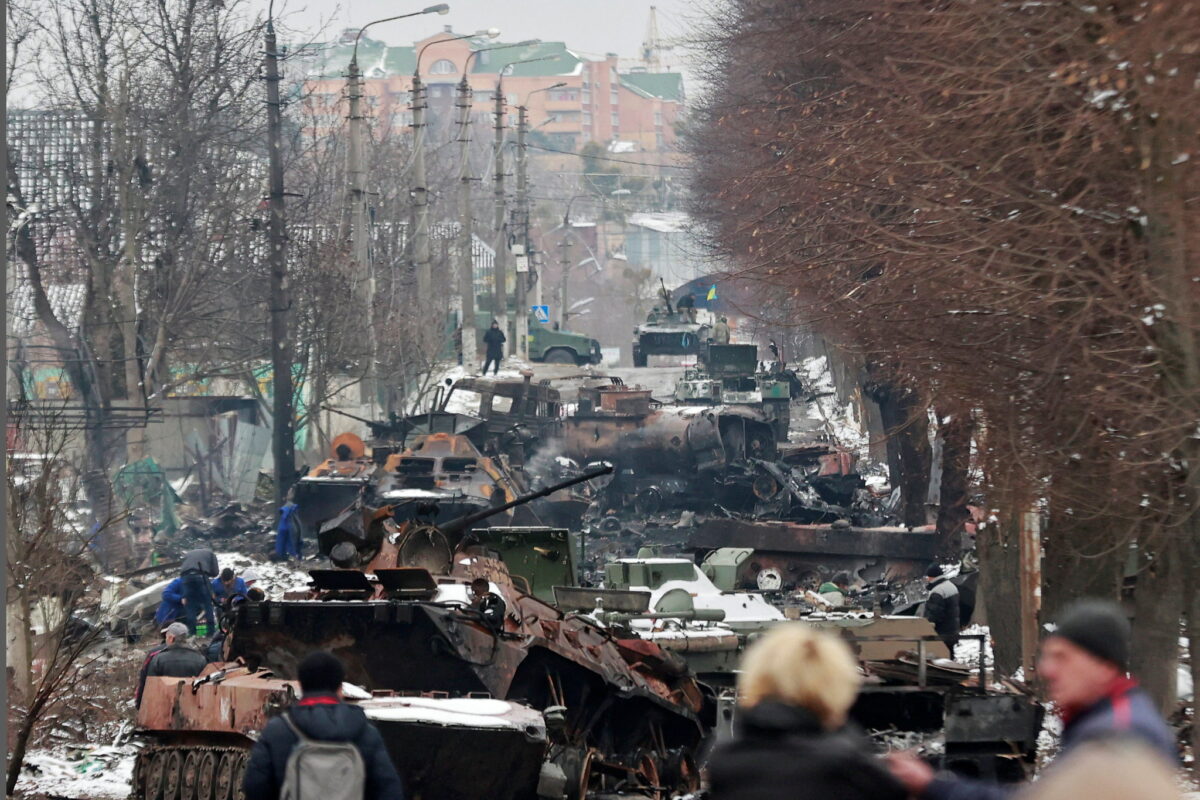NATO Boots-on-the-Ground in Ukraine
Sleepwalking
This is how a continent sleepwalks into war. It’s not that Europe desires war, or pines for it after a hiatus of seventy years. Rather, the continent is slowly being ushered into one by immutable circumstance over which it no longer has control.
It happened before. In 1914, the German Empire was likewise prompted to act in support of its belligerent yet weak and divided Austro-Hungarian Empire ally which sought to exact vengeance on Serbia after the assassination in Sarajevo of Archduke Franz Ferdinand, heir-presumptive to the throne.
The mobilisation of Austro-Hungarian forces, in turn, prompted the Russian Empire to do likewise in a move aimed to show a willingness to come the rescue of its ally in the Balkans. Vienna, recognising its own limitations only too well, put in a call to Berlin invoking the Austro-Germany Alliance of 1879. With this pact, the two powers promised each other support in case of aggression by Russia.
The Germans duly mobilised their army upon which the French did the same. Only the British remained aloof, considering that their guarantee of Belgian sovereignty and neutrality – anchored in the Treaty of London (1839) – did not require them to intervene militarily.
Thus, in a matter of weeks the Concert of Europe split into its dissonant component parts. The construct was erected in the wake of the French Revolutionary and Napoleonic Wars to delineate the spheres of influence of the participating powers and ensure a modicum of political stability. The ‘concert’ arose out of the Congress of Vienna where the great powers of Europe – Austria, Prussia, Russia, France, and Great Britain – agreed to periodically meet and coordinate policies to repress revolutionary and liberal movements – and stop localised conflicts from escalating into full-blown wars. The Congress of Vienna also carved up Africa and assigned bits and pieces to the colonial powers.
Generally considered an abysmal failure of diplomacy, the ‘concert’ saw the unification of Germany under Prussian leadership and that of Italy – the ‘Risorgimento’. It was unable to prevent the Franco-Prussian War of 1870, considered a prelude to the Great War that was to follow 44 years later.
Marching Off to War
Just as then, modern Europe, today a unified soft power and nominally pacifist concert, is struggling to halt its march to war. According to tabulations by the Kiel Institute, last updated in April, European countries including the EU have sent almost €90 billion in aid to Ukraine, roughly equally divided between military and economic support. Before the US Congress approved the latest US military aid package for Ukraine, worth some €58 billion, Washington had already dispatched €65 billion.
This largesse binds Europe and the United States to Ukraine in multiple ways. Whilst commitments to the defence of the country grow, a victory by Russia becomes ‘unthinkable’. Yet, reality dictates that Moscow is inching closer to attaining some of its war aims, such as the ‘liberation’ of the Donbas. Ukraine’s supporters can no longer afford a defeat of any sort. The credibility of the West is at stake. A climb-down that awards Russia the spoils of its war has, to all intents and purposes, become impossible.
Whilst it seems (for now) unlikely that President Vladimir Putin of Russia would entertain any designs on NATO member states, the intoxicating effect of a win in Ukraine could quite conceivably embolden the Russian leader. Moreover, rewarding aggression constitutes a slippery slope that undermines the stability of the continent – and the wider world. The inviolability of borders is a cornerstone of international relations. Its demise opens a Pandora’s box of uncertainties and angst. It doesn’t require much imagination to foresee other territorial disputes escalating.
President Emmanuel Macron of France, often ridiculed in the Anglophone world for his grandiose statements, was the first to publicly recognise and admit that NATO ‘boots on the ground’ may eventually be needed to avoid the unthinkable from happening. European leaders were quick to dismiss the idea as an unwelcome distraction and needless provocation of the Kremlin which promptly responded with the announcement of exercises involving the deployment of tactical nuclear weapons.

Deeply Invested
However, both Europe and the United States are too deeply invested in Ukraine to contemplate a defeat. In the late 1800s, when the British Empire reached its apex, Queen Victoria reportedly stated rather bluntly: “We are not interested in the possibilities of defeat; they do not exist.” It is the exact same today with Ukraine. A defeat of that country is simply not in the cards. Such an event would dramatically alter the global balance of power in favour of aggressors states and their authoritarian leaders – and seal the demise of Western liberalism and humanitarianism.
There is a reason why President Xi Jinping of China sits on the fence and pays lip service to his Russian counterpart. China restricts its support of President Putin’s ‘special military operation’ to empty promises and flowery rhetoric. The country does not wish to throw in its lot with rouge states such as North Korea and Iran that offer Russia military hardware, albeit of dubious quality.
In fact, as far as the Chinese are concerned, President Putin may continue in his role of ‘useful idiot’ for any advances he makes on the battlefield chip away at Western power and influence. Conversely, a Russian defeat in no way affects Beijing. Thus, it would seem that China has studied game theory and now expertly applies its principles, placing the country in a position that precludes the possibility of loss.
Not so for the United States and Europe which, should the Ukrainian battlefield creep much further westward, must inevitably contemplate sending in troops and equipment to push the Russians out – or into a stalemate that can be leveraged in peace talks. Ukraine is not at all like Vietnam – at the time a bloody sideshow at best – that may be abandoned almost at will and left to its own devices.
Ukraine is Europe and involves more than one superpower. Whilst the US defeat in Vietnam constituted an embarrassment, a rout in Ukraine would signal a collapse of the world order – something, perhaps, eagerly awaited by some in the Global South, but also something that Mr Putin’s more distant and discreet well-wishers – looking at you South Africa – would come to rue. However imperfect the current order, it is rules based and includes paths to reform.
Changing the Equation
Whilst history does not usually repeat itself, certain elements of it are grounded in human nature and drive events time and again. Though Russian threats regarding the use of nuclear weapons may, for now, be safely discarded as grandstanding, a counteroffensive by NATO forces rolling back the invaders’ gains can well change the equation.
Also, it remains unclear what Mr Putin intends to actually do, should he somehow manage to humiliate the West and conquer Ukraine. How does he expect to rule an occupied nation of forty million people who, for the most part, do not wish to be incorporated into his empire. If Great Britain, Russia, and the US were unceremoniously ejected from Afghanistan by robed, bearded, and illiterate warriors, how well will the Kremlin fare in Ukraine?
Notwithstanding all denials, the dark contours of the scenario suggested by President Macron are already visible. With each day, week, and month that passes, the US and Europe are pulled deeper into the quagmire. The war has now gained a dynamic all its own and deprives the West of policy choices. There are none left other than to see it through – come what may.
The only fig leaf Ukraine’s allies can possibly and credibly offer President Putin is a Hong Kong-style formula for the Crimean peninsula – a lease of, say, 99 years without the transfer of sovereignty. After all, in a century or so, Russia will likely have rejoined the civilised world. Such a solution must, however, be approved by the Ukrainian people who, moreover, must remain wholly sovereign to shape their own future, including NATO and EU membership.
At present, Russia is decidedly unwilling to agree to such terms. Yet, the country may have a change of heart should the untold billions in military kit finding its way east manage to revert the fortunes of the Ukrainian defenders. If not, Mr Macron’s words need to be seriously reevaluated.
Should the €100 billion or so in military hardware currently underway to Ukraine make no discernible difference on the battlefield, the time will have come to wake up and take charge. Before long, sleepwalking will no longer be an option.
Photo cover: Decommissioned Russian army vehicles in Bucha, Ukraine.
- © 2023 Photo Bucha by Houses of Oireachtas
- © 2021 Photo President Emmanuel Macron by Faces of the World


